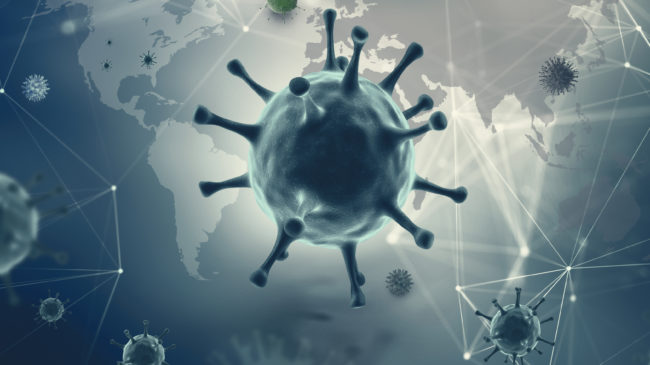President Trump’s suspension of U.S. funding to the World Health Organization pending a review of its coronavirus response and propagation of misinformation from the communist Chinese dictatorship offers an opportunity to question the role and workings of the world’s premier taxpayer-funded international health body.
While the funding cut’s focus has been coronavirus-related, recent events highlight the longstanding record of misinformation, mismanagement, and politically biased behavior by the WHO and its representatives, which has eroded the legitimacy of a body once lauded for helping to eradicate smallpox.
The World Health Organization should have to reform how it does things if it’s to justify receiving hundreds of millions from hardworking American taxpayers every year, especially when its actions have undermined many of the global public health objectives it claims to support.
That the WHO failed to declare a public health emergency once the seriousness of the COVID-19 outbreak became clear back in January, not even sending an advance party of its officials to China until February, was no aberration. As recently as April 2019, it declared that an Ebola outbreak in central Africa “does not constitute a public emergency of international concern” for the second time in two years, showing that it had failed to learn lessons from its slow response to the original Ebola outbreak in 2014.
Elsewhere, the WHO has received widespread criticism from animal conservation groups for recognizing traditional Chinese medicine in its international guidelines after lobbying by Beijing despite its role in driving the illegal trade and poaching of endangered species including pangolins and tigers — a trade that might ironically have contributed to the coronavirus’s outbreak in the first place.
And as we now know, alternative medicine is the tip of the iceberg when it comes to Beijing’s influence. Even after China’s brutal suppression of doctors and journalists trying to expose the outbreak’s extent, Dr. Tedros Adhanom, the WHO’s director-general, continued praising the Chinese government — absurdly lauding them for their “transparency” and for making us “feel safer.”
Although considering that this is the same man who appointed genocidal Zimbabwean despot Robert Mugabe as a goodwill ambassador, it’s hard to say whether the praise was driven by lack of judgment rather than alleged pressure from Beijing, which increased its annual funding to the WHO by roughly 65 percent between 2016 and 2019. And while the WHO’s ample resources don’t always go toward expediently identifying pandemics or investigating dubious statistics about diseases such as the coronavirus from authoritarian regimes such as China, they’ve certainly gone toward making questionable claims that have put public health at risk.
The widespread backlash has forced the WHO to reverse its incorrect statements that there’s no “clear evidence of human-to-human transmission” of the coronavirus and that wearing masks won’t fight the coronavirus’s spread. But they’ve yet to correct unscientific claims about the risks of vaping or their dubious advice that smokers trying to quit cigarettes reject vaping in favor of nicotine patches even though these are proven to be half as effective as quitting aids.
At a time when conspiracy theories such as “vaccines cause autism” and “5G towers spread cancer” are gaining traction and threaten to stall technological progress while putting human life and health at risk, an organization with the resources to educate the public while bringing nations together to tackle global health issues could prove invaluable.
Unfortunately, the World Health Organization has instead sacrificed public trust and goodwill by serving the interests of a human rights-abusing authoritarian regime and spreading blatant misinformation. It will continue to be a self-parodying shadow of itself ripe for further funding cuts from the liberal democracies that have historically supported it, and who might instead choose to further global health through a new organization, unless it cleans up its act.
A version of this column previously appeared in the Washington Examiner.

